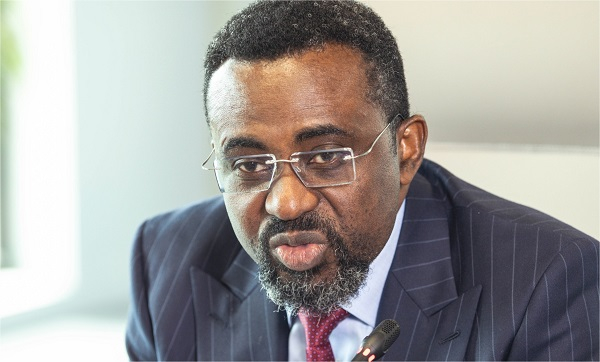The Governor of the Bank of Ghana (BoG), Dr. Johnson Pandit Asiama, has called on all Ghanaians to support efforts aimed at protecting the cedi, Ghana’s only legal currency. He warned against the growing use of foreign currencies like the US dollar for everyday transactions and called such acts illegal and dangerous to the country’s economic future.
Dr. Asiama gave this message while speaking at the 11th Absa-UPSA Law School Quarterly Banking Roundtable, which took place at the University of Professional Studies, Accra (UPSA), last Thursday. The event brought together bankers, regulators, and academics to discuss challenges affecting the country’s banking system and economy. The topic of the day was: “Ghana’s Legal Tender, Monetary Policy and the Rising Cedi.”
He said the dollar is not a legal tender in Ghana and warned that using it for regular business transactions such as rent, school fees, and retail payments was against the law. “If you pay me in dollars for a service, I have every right not to accept it,” Dr. Asiama said. “Consciously, we must protect the cedi and ensure that it is the only form of transaction in this country.”
The central bank governor explained that legal tender is the foundation of any country’s economy. It affects contract enforcement, how businesses bill customers, and the entire financial structure. He said the cedi is the only currency legally recognized in Ghana, and any attempts to sideline it — whether by pricing goods in foreign currencies or demanding payments in dollars — weakens the economy and challenges Ghana’s sovereignty.
“Any attempt to displace the cedi in ordinary commercial transactions, whether through mandatory dollar invoicing, preferential pricing in foreign currency or informal currency substitution, is not only economically distorting but also legally impermissible,” Dr. Asiama stated.
He expressed concern about the growing number of businesses and individuals who now price goods and services in foreign currencies, especially the US dollar. He described this as an “assault on the country’s sovereignty” and a dangerous economic trend that must be stopped immediately.
Dr. Asiama also warned against counterfeiting and other financial crimes, saying they damage confidence in the cedi and hurt Ghana’s economic development. “Whether in real estate, school fees, or high-value retail, the cedi is bypassed not because it is unfit, but because we have allowed perception to defeat policy and convenience to defeat sovereignty,” he added.
He praised the performance of the cedi, which has gained over 42 percent since the beginning of the year. He said this achievement is not only a result of strong monetary policy by the central bank, but also proof that the cedi can be just as strong as other global currencies. However, he stressed that maintaining this growth depends on collective efforts from all Ghanaians.
“The cedi can be as good as any of the best-performing and recognised currencies,” Dr. Asiama declared. “But protecting it is not only the work of the central bank or the government. It is a shared responsibility.”
He also used the opportunity to reflect on the cedi’s history. He reminded the audience that the cedi was introduced in 1965 by Ghana’s first President, Dr. Kwame Nkrumah, replacing the West African pound. He said this move was a strong declaration of Ghana’s economic independence and national identity.
“The introduction of the cedi by Dr. Nkrumah marked a profound act of economic self-determination. It was a symbol of national pride and a sign that Ghana was ready to control its own destiny,” he said.
As part of the cedi’s 60th anniversary celebrations, Dr. Asiama announced that President John Dramani Mahama will soon launch a series of activities to honour the national currency and promote its importance in daily life.
Also speaking at the event, the Dean of the UPSA Law School, Professor Kofi Abotsi, said the banking roundtable was a vital platform that brings together major players in the financial sector. He said the discussions held at such events help shape legal policies that support banking operations and promote economic growth.
In summary, the BoG Governor’s message was clear — the cedi must be respected, used, and protected by every Ghanaian. He said avoiding the use of foreign currencies for everyday transactions is not only a legal duty but a patriotic one that will help the nation build a strong and stable economy for future generations.
